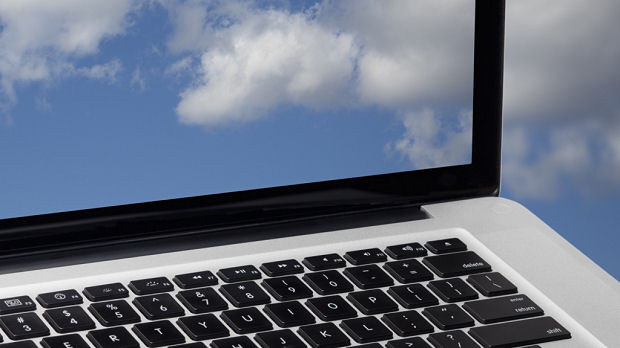Is sky the limit for Apple’s new iCloud?
Apple’s new iCloud service, launched amid the razzmatazz that traditionally accompanies new Apple products, aims to be another game-changer for what is now the world’s biggest tech company.

“Today it is a real hassle and very frustrating to keep all your information and content up-to-date across all your devices,” said founder and CEO Steve Jobs at the launch.
“iCloud keeps your important information and content up to date across all your devices. All of this happens automatically and wirelessly, and because it’s integrated into our apps you don’t even need to think about it – it all just works.”
In the past, Apple products have defined the way we communicate, listen to music and use the internet. Now the iCloud promises to transform our relationship with the information we are used to storing inside our computer.
Most computer users keep their information – documents, music, spreadsheets – on the hard disk of their PC. The data is generally (though not always) secure, but keeping it on a single machine limits its accessibility.
Many of us have been using the cloud for time time, via Hotmail and Gmail.
The cloud computing model allows information to be stored online, “in the cloud”, so the user can access data from any computer terminal with an internet connection.
In fact, many of us have been using the cloud for some time. Online email services such as Hotmail and Gmail make use of cloud email servers. Google Docs allows the user to store text files in a range of formats, including spreadsheet and word processor.
And on 15 June Google launches its Chromebook – effectively a computer whose operating system is based on the Chrome browser and a wi-fi or 3G connection. Its entire functionality depends an online connection.
A little device with all my content
If Apple convinces consumers to use music services via the iCloud, then it's pretty obvious people will start to watch films via it, but also start to store their own information - and in the same place, blogs Channel 4 News Technology Correspondent Benjamin Cohen.
And a cloud service where you can access your music, photos, everything wheverever you are, suddenly makes Apple's flagship devices - the iPhone, theiPad - that much more powerful because I could have in my pocket a little device which has access to every piece of content I own, whether it's content I've made myself or bought from other people.
Read more: Apple reaches for the sky (well, the iCloud)
Where Apple’s iCloud is likely to score over its rivals is in music services. Anyone with an iTunes music library on one computer will be able to compare the “audio fingerprint” of individual tracks in that library with an identical waveform on the iCloud.
If the fingerprints match, the user should be able to access the relevant tracks from anywhere. And deals with major record labels mean Apple will be able to apply the model to a wide range of music.
The scan-and-match technology could also make it possible for the first time to monetise illegally downloaded songs whose waveforms match those of tracks residing on the cloud server.
The iCloud model is different from that of Amazon, whose Cloud Drive – available only in the US – allows users to upload files to a central server, which then become accessible from anywhere.
Apple’s endgame
So what are the disadvantages of the cloud computing model? In the event of a security breach, for example, how easy is it to verify the extent to which your data has been compromised? And how efficiently does the cloud provider dispose of a user’s data at termination of contract? Future users of Apple’s iCloud are advised to examine the contract for clarification on these and other security concerns.
Nate Lanxon, editor of wired.co.uk, told Channel 4 News security fears were unjustified. “The main questions around it are rental – with the iCloud, you’re basically renting music rather than owning it.
“Another aspect is that to stream, you need an internet connection. Spotify got around this by letting you store local copies. But the inherent problem with streaming is that you always need to be within close range of wi-fi or 3G, which can have cost implications.”
I can’t imagine Apple is going to be running an iCloud app for Android. Benjamin Cohen
The endgame for Apple, though, is to reinforce the connection between the data we use and the hardware we use in order to access it. “Really, what iCloud is going to be is a unification of your own information across all devices. It doesn’t matter if you’re on an iPad or iPhone or Mac computer.”
Channel 4 News Technology Correspondent Benjamin Cohen agrees: “Given how much money Apple makes from selling iPhones and iPads, offering a service that makes us more more tied to Apple will surely make their tablets and phones that much more competitive than those that run Google’s Android operating system or Microsoft’s Winsows OS.
“Basically, I can’t imagine that Apple is going to be running an iCloud app for Android!”